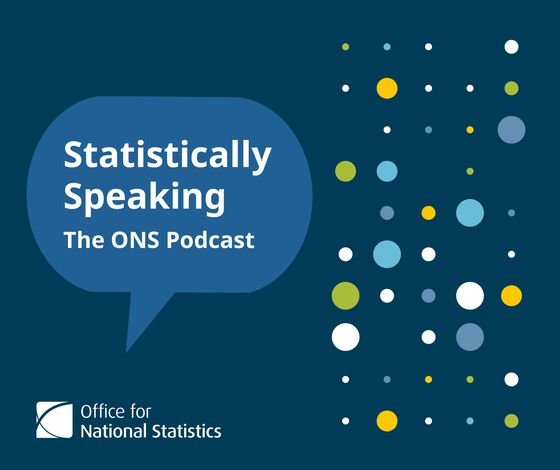International Development: Growing a Global Statistical System

Global issues, such as climate change, population growth and inflation to name a few, are best understood with the benefit of good global statistics. So, to that end, the ONS works in partnership with a number of countries worldwide with the ultimate aim of raising the world’s statistical capabilities.
In the latest episode of Statistically Speaking, podcast host Miles Fletcher chats to the head of the Ghanaian Statistical Service, Professor Samuel Annim; Emily Poskett, Head of International Development at the ONS; and Tim Harris of the ONS Data Science Campus’s international development team, about what international partnerships are achieving.
As you’ll hear, in Africa this has involved using AI and machine learning to track the movement of displaced populations in Somalia, to help run an effective census in a country where an estimated 3 million people are without a permanent address. It has also meant embedding state of the art inflation indices and other economic data in Ghana, to reliably track the economy in real-time.
As Tim Harris explains:
“Data science, and the tools of the digital age, can do much of the basic underpinning work in statistical modernisation very well, to help us achieve much greater efficiencies in the key tasks that every national statistics office undertakes.
“As a result of our work to automate Ghana’s consumer price index, we’re already seeing that it’s speeded up the process, reduced the scope for human error and enabled more robust quality assurance checks, and all in a much more transparent process that can be maintained over time. Now we can think about how we apply this to other areas of statistics production.”
We also hear about the wave of transformation sweeping across many national statistical offices around the world, as we aim to modernise statistical outputs by complementing traditional data sources, such as surveys and censuses, with non-traditional data sources and new technology.
Reassuringly, it seems the methods and technology being introduced in developing nations are not too far behind those being used in the UK. And when it comes to measuring progress beyond GDP, to estimate the value of unpaid work across our societies and provide a more holistic view of how we are doing, we’re certainly singing from the same hymn sheet.
Click here to listen to the full episode now, or find us on your podcast app of choice. You can listen to all episodes of Statistically Speaking alongside a written transcript in our podcast library.